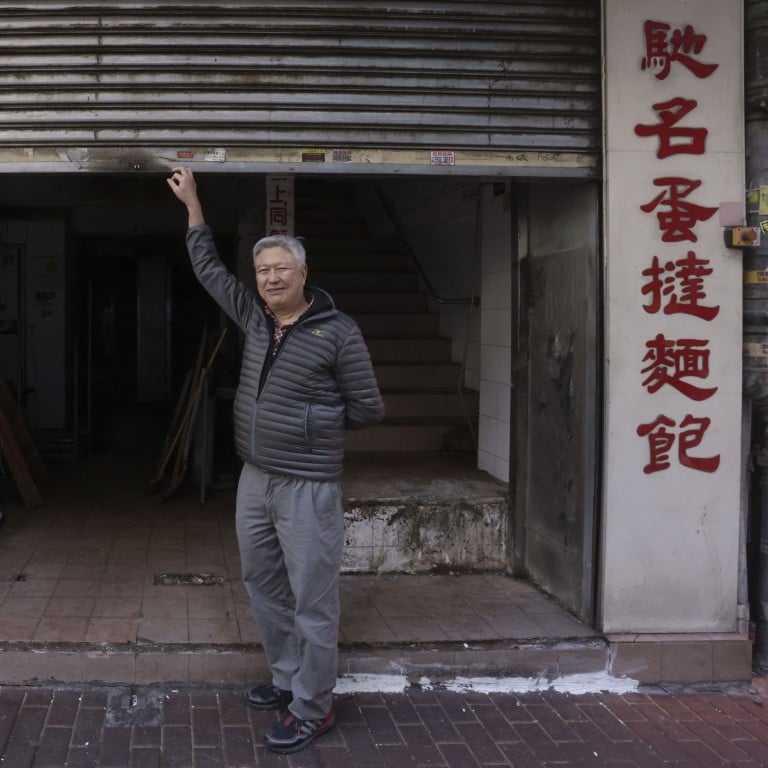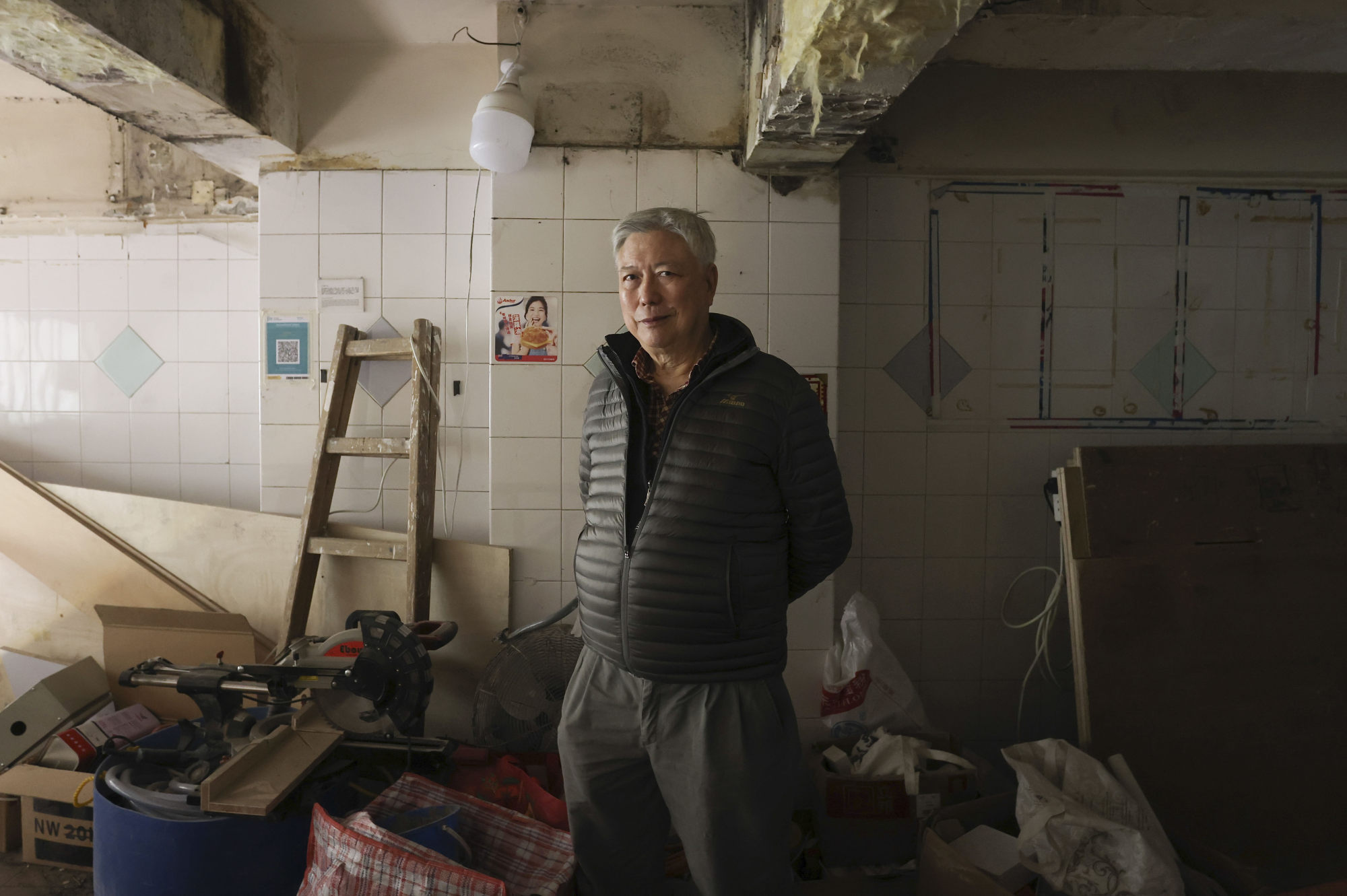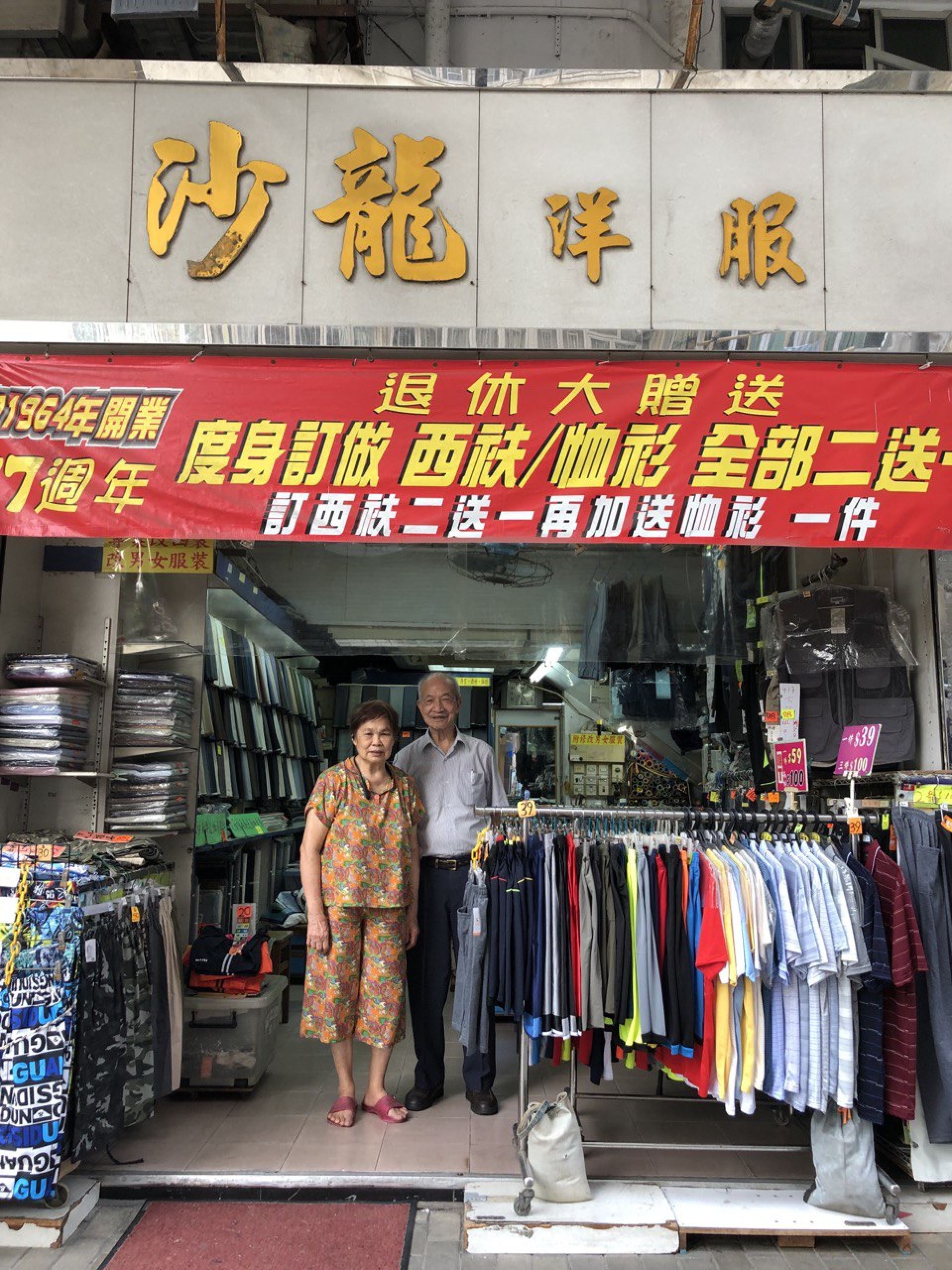
‘We were like a family’: Hong Kong’s traditional shops are fading as ageing owners struggle to keep businesses alive
- Well-known cha chaan teng, bespoke tailor store and dried seafood products shop among those that have shut
- For some ageing shop owners, the Covid-19 pandemic proved the final blow, pushing them to retire
After nearly half a century serving milk tea with lotus seed cocktail buns and egg tarts, Chow Sek-fung decided time was up for his Hong Kong-style eatery, a landmark in Kennedy Town.
“I felt pain in my heart when I demolished the wall and broke tiles I’d installed on my own,” said the 77-year-old, who had to return the premises to the landlord in its original state.
For decades, Cheung Heung Yuen Cafe was a place where long-time residents gathered to have a cup of tea, enjoy a snack and chat.

“We were like a family,” Chow said. “Many old patrons brought their grandchildren, and even those who moved away came back for our food.”
He took over the business in 1977, a decade after the cha chaan teng opened to serve low-priced Western food to blue-collar workers in the area.
It was his livelihood, and paid for his three sons to be educated overseas.
Until last November, two of his sons helped to keep the business going. Now his sons are returning to Canada, but Chow will remain in Hong Kong.
Mourning Hong Kong’s maze of memories: textile hawker market closes after 45 years
“I feel so proud that the cafe supported our family all this time. But my sons are leaving the city and I’m too old to continue,” the grandfather of five said.
The cafe is among 38 shops that had been running for more than 30 years and had either closed or were at risk of shutting down last year, according to a study by Liber Research Community, an NGO focused on development issues.
They had nobody to take over, or faced issues such as selling outdated products, high rent and redevelopment of their neighbourhoods.
Dying art: Hong Kong bamboo master, 93, drives city’s dim sum love affair
Sad to see them fading from the city’s scene, finance product manager Ian Ma Kei-lok, 40, has been documenting the city’s old shops in his free time and started a Facebook page, Hong Kong Historical Shops, in 2018.
With the help of 14 volunteers, he has recorded the stories of more than 100 old shops, hoping to connect ageing operators with new investors to keep their businesses going, and find apprentices to learn from senior craftsmen.
“Old shops are more than a business. They are part of Hong Kong culture and Hongkongers should do something for them,” Ma said.
‘He hoped to work a few more years’
Over at Kowloon City, near the former Kai Tak Airport, the 58-year-old Salon Tailor has been replaced by a printing shop.
Mondi Lam, in her 30s, said she grew up watching her grandfather making bespoke suits for local and foreign customers.

He told stories of his family fleeing mainland China in the 1950s by boat before the Cultural Revolution, and how they ventured into the tailoring business at a time when the city’s manufacturing industry was thriving in the 1960s and 1970s.
“My great-grandfather and my grandfather started working in factories. As demand for garments grew, they put down roots in Kowloon City to run their own business,” Lam said.
Are Hong Kong’s hawkers dying out? Vendors contend with licensing laws, old age
Her grandfather described working hardest before and after winter. “The airport brought him a lot of business and he sometimes had to work overnight to compete with a dozen other tailor shops on the same street,” she said.
But business waned after Kai Tak Airport closed in 1998, and people switched to fast fashion and new styles. Her grandfather began offering alteration services and selling clothes for older people, but it was never the same again.

Three years of the Covid-19 pandemic delivered the final blow. Confined at home by strict social-distancing curbs, her grandfather, now 84, lost interest in continuing the business and there was no one else to take over.
“He’d hoped to work a few more years,” said Lam, who works in marketing. “It’s a pity, but every industry has its endpoint. I also have no interest in tailoring.”
A month after Salon Tailor closed in January, another old business folded.
At Tung Cheong Ho in Sheung Wan, the Li family sold traditional Chinese dried seafood products for half a century before handing over the premises to a pawnshop.

Li Hon-hing, the family’s fourth generation leader, revamped the business in 2013 after he noticed that loyal customers were growing older and spending less.
He attracted younger shoppers with his Facebook videos, showing them how to choose and cook good-quality dried scallops and shiitake mushrooms.
He also listed product prices clearly, to counter criticism of opaque pricing by such shops.
When the landlord refused to renew their lease, Li decided it was best to close, as it could cost at least HK$5 million (US$636,960) to start over somewhere else.
Premium dried seafood products had also become scarce and customers were watching their budget in the weak economy.
One of Hong Kong’s last mahjong craftsmen facing eviction from stairwell store
“I didn’t want to compete with low prices. If I reopened the shop but failed to provide good products, Tung Cheong Ho would lose its meaning to our customers,” Li said.
Chinese University anthropology professor Sidney Cheung Chin-hung said the closure of familiar old shops was a loss, as they stood for the lifestyle and history of older generations.
He conceded that it was up to the owners to decide whether to carry on, but added: “We can do more, by collecting their items and recording their stories, like keeping the cafe set-up and old photos for exhibitions. It’s a way of keeping the city’s history.”

